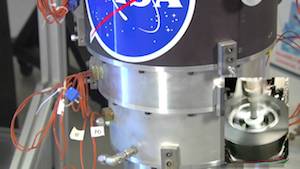NASA has selected four energy storage proposals that may be used to power future space missions.
The four project proposals aim to develop power-generating and storage systems that are reliable and able to work under hostile conditions in space.
The agency will fund technology developments of silicon anode-based cells for high specific energy systems, submitted by Amprius and long-life lithium-sulfur batteries for aerospace applications from the California Institute of Technology as well as the research of rechargeable lithium-sulfur batteries from the Indiana University and lithium-sulfur energy storage by the University of Maryland. The projects will work under the management of NASA’s “Game Changing Development Program”.
NASA will give the awards in phases. In phase one, NASA will provide $250,000 to each project to conduct eight-month long component tests and analysis. The next phase is aimed for hardware development with $1m for one year. The final phase will consist of prototype hardware development for $2m for 18 months.
“New energy storage technology will be critical to our future exploration of deep space-whether missions to an asteroid, Mars or beyond. That’s why we’re investing in this critical mission technology area,” said NASA associate administrator for space technology Michael Gazarik.












